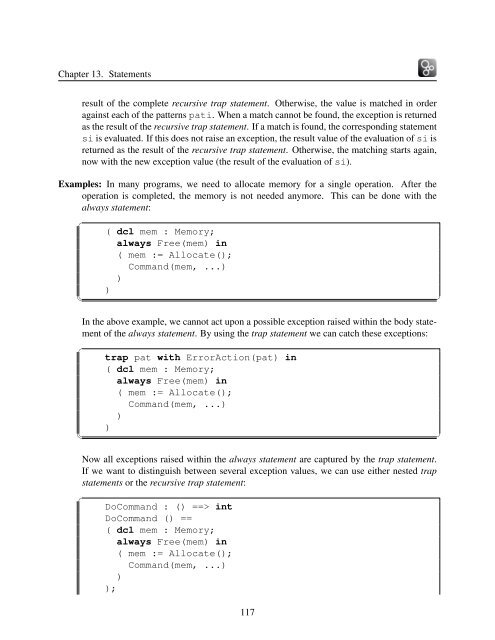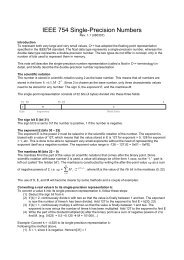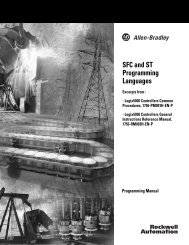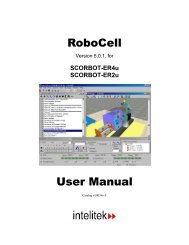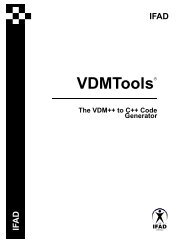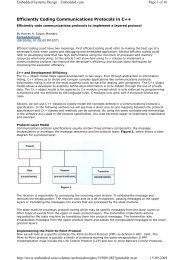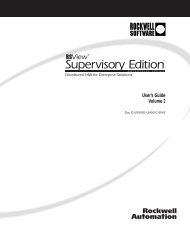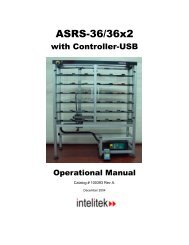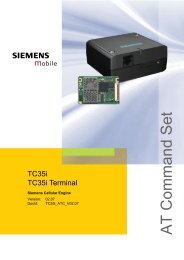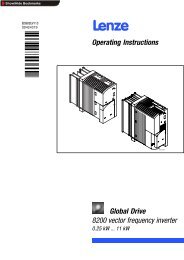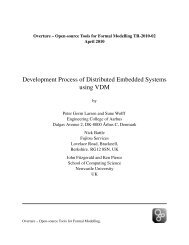VDM-10 Language Manual
VDM-10 Language Manual
VDM-10 Language Manual
You also want an ePaper? Increase the reach of your titles
YUMPU automatically turns print PDFs into web optimized ePapers that Google loves.
Chapter 13. Statements<br />
result of the complete recursive trap statement. Otherwise, the value is matched in order<br />
against each of the patterns pati. When a match cannot be found, the exception is returned<br />
as the result of the recursive trap statement. If a match is found, the corresponding statement<br />
si is evaluated. If this does not raise an exception, the result value of the evaluation of si is<br />
returned as the result of the recursive trap statement. Otherwise, the matching starts again,<br />
now with the new exception value (the result of the evaluation of si).<br />
Examples: In many programs, we need to allocate memory for a single operation. After the<br />
operation is completed, the memory is not needed anymore. This can be done with the<br />
always statement:<br />
✞<br />
✡✝<br />
( dcl mem : Memory;<br />
always Free(mem) in<br />
( mem := Allocate();<br />
Command(mem, ...)<br />
)<br />
)<br />
In the above example, we cannot act upon a possible exception raised within the body statement<br />
of the always statement. By using the trap statement we can catch these exceptions:<br />
✞<br />
✡✝<br />
trap pat with ErrorAction(pat) in<br />
( dcl mem : Memory;<br />
always Free(mem) in<br />
( mem := Allocate();<br />
Command(mem, ...)<br />
)<br />
)<br />
Now all exceptions raised within the always statement are captured by the trap statement.<br />
If we want to distinguish between several exception values, we can use either nested trap<br />
statements or the recursive trap statement:<br />
✞<br />
DoCommand : () ==> int<br />
DoCommand () ==<br />
( dcl mem : Memory;<br />
always Free(mem) in<br />
( mem := Allocate();<br />
Command(mem, ...)<br />
)<br />
);<br />
117<br />
✆<br />
✆


